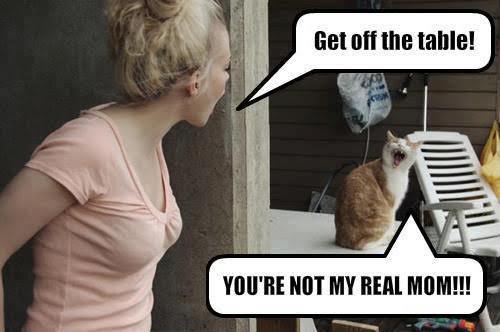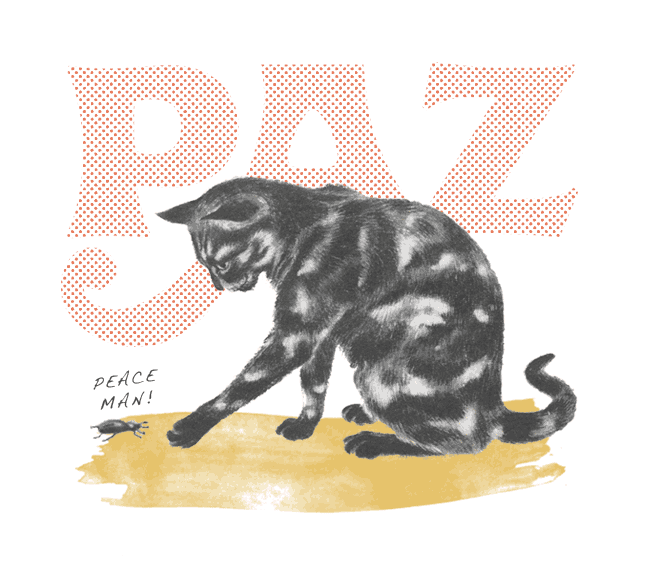Post by Dr. Jamie Senthirajah
Overview
Do you envy your cat because he is able to eat whatever he wants and still loses weight? Well, it may not be good genes keeping him svelte enough to fit in those skinny jeans, but he could have a condition called hyperthyroidism.
Hyperthyroidism is a condition where the thyroid glands (located in the neck) produce too much thyroid hormone, which can directly or indirectly affect all body organs and systems.
The mean (average) age of cats that are affected is 13 years-of-age, but cats from 4-24 years have been diagnosed with this disease. All breeds of cats are susceptible to getting this condition. The main cause of this condition is due to benign hyperplasia (non-cancerous growth) of the thyroid glands. But other conditions can also cause this increase in hormone production.
Signs
Some of the common signs you may see in your cat include weight loss despite a stable or increased appetite, increased urination and drinking, vomiting, diarrhea and voluminous stool, and weakness. Some cats also appear restless due to an increase in metabolic rate. This may make some cats as feisty as some people after a drink or two. These signs may prompt you to bring your kitty to see your friendly veterinarian. Some of the common physical exam findings we may see include a palpable thyroid growth, weight loss, a heart murmur or tachycardia (increased heart rate).
Diagnosis
If we suspect your pet has hyperthyroidism (or any other metabolic condition), we will recommend your pet receive labwork (blood and urine testing). This screening test will look at the total thyroid levels, among other information, in the blood. Based on this value, we may recommend evaluating something called free T4 (the amount of thyroid hormone that is not bound to proteins), as this gives us more information on the thyroid state.
Treatment and Follow-Up
There are four main treatments to combat hyperthyroidism. Each has its own benefits and drawbacks, so a discussion with your family is needed to determine what option is best for your kitty and family.
Daily Medication
An oral or transdermal medication is used to reduce the amount of circulating thyroid hormone in the body. This medication is given life-long every 12 to 24 hours and is relatively inexpensive in the short-run, but has potential (but relatively uncommon) side-effects (e.g. liver disease, blood cells count abnormalities, facial excoriation, vomiting, and anorexia). To gauge response to treatment and to evaluate for possible side effects of the medication, repeat bloodwork every 4 weeks for the first three months. After that, reevaluation is performed at 6 months post-diagnosis then every 6-12 months. In cats that do not have side effects of the medication, efficacy is over 90%.
Radioactive Iodine
Yes, this treatment involves giving your cat radiation… unfortunately, he won’t become a superhero! Ha! In this procedure the abnormal tissue takes up the radioactive iodine and is destroyed while sparing the remaining normal tissue. Advantages of this treatment are that it is non-evasive and it cures the problem- FAST! However, this treatment requires specialized equipment and facilities, which makes it more expensive and relatively difficult to have performed. Additionally, cats need to remain hospitalized for a short duration after treatment to ensure that no radiation is brought to your home, and to check for any blood abnormalities. Treatment is 94% successful: some cats may remain hyperthyroid or have a relapse later, and some cats can become hypothyroid (not enough thyroid tissue remaining to keep levels normal). After treatment, we need to recheck bloodwork every four weeks for the first three months. Reevaluation is performed at 6 months post-diagnosis, then every 6-12 months thereafter.

Surgery
In this procedure, the affected portion of the thyroid gland(s) are surgically removed. This procedure cures about 90% of cats, but there are risks associated with the surgery such as damage to the surrounding nerves, and electrolyte abnormalities. Thus, this surgery is best performed by a board-certified surgeon. Before your kitty is discharged from the clinic, electrolytes need to be closely monitored. And again, after treatment, we need to recheck bloodwork every four weeks for the first three months. After that, reevaluation is performed at 6 months post-diagnosis then every 6-12 months.
Diet
A prescription diet (Hill’s y/d) contains limited amounts of iodine and has been shown to reduce thyroid levels back to normal levels within 8-12 weeks in 85% of cats. This means that your cat may be able to be managed with diet only, but also means that no other food (treats included) can be given to your pet throughout its life. We need to recheck bloodwork every 4 weeks for the first three months. After that, reevaluation is performed at 6 months post-diagnosis then every 6-12 months.
Why all this repeat bloodwork?!
We recommend the bloodwork mentioned previously because we want to evaluate for response to treatment. That is, we want to evaluate thyroid levels. We also want to evaluate other blood parameters as side effects can occur with oral and transdermal medication. If these are noted, we may need to change the treatment regimen. Another important aspect to evaluate is renal function. Hyperthyroidism and kidney disease can both affect older cats. However, hyperthyroidism increases blood flow to the kidneys, so it may be masking kidney disease in which blood flow is decreased. Once the thyroid status is normalized, kidney disease may be unmasked, which may require additional treatment to give your kitty the best care.
Improvement and Prognosis
Improvement and reduction of clinical signs can be very rewarding, but the timeframe is dependent on what treatment option is chosen, dedication by you, and your kitty’s response. Survival after successful treatment is about two years, and the quality of life in this time is very good depending on any other abnormalities your pet may have.
As always, please do not hesitate to call us should you have any questions or concerns!







